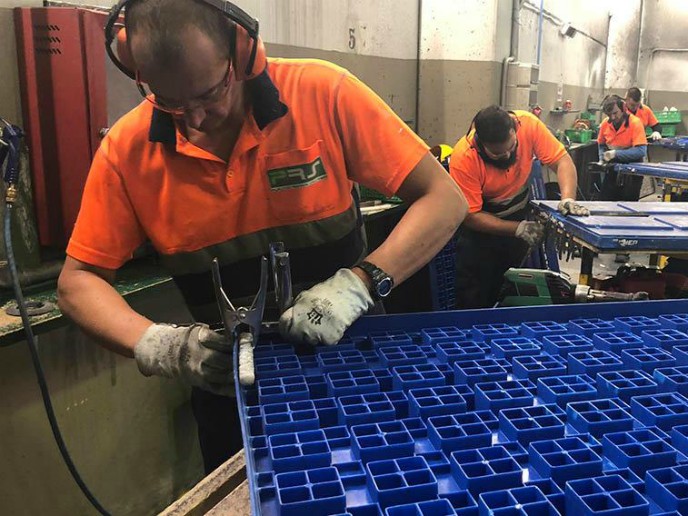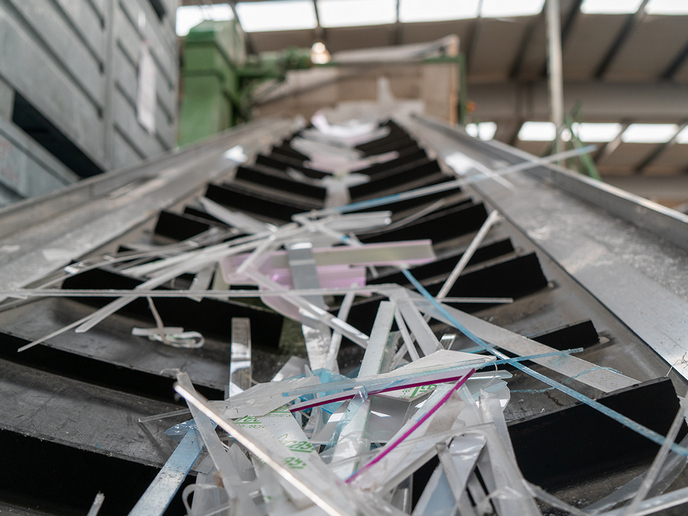Repair your plastic crates instead of buying new ones, save 70 % cost in the process
The overwhelming extent of disposable plastics pollution could easily make us forget about their reusable counterparts. After all, reusable plastics have a longer lifespan, and they can easily be recycled, right? Take returnable transport packaging, (or RTP) for instance: to carry goods across Europe, sectors such as the automotive, beverage or logistics industries will often use plastic pallets or crates. Equally, most public bins you’ll find on the street are made of plastics. Such plastic containers usually have a rather long lifetime – from five to 10 years – and a reasonable proportion of them will indeed be recycled after being disposed of. Does that mean they have no impact on the environment? Far from it, according to Ms Laura Alban, CEO of Spanish SME Plastic Repair System (PRS): “There are more than 1 800 million plastic RTPs rotating all over Europe, and 15 % of them are supposedly damaged and discarded every year. Recycling is only one option to handle this plastic waste, alongside landfilling and incineration. And all of these options have a substantial environmental impact.” PRS strongly believes that the solution is a switch in practices, pushed by its own technological leap. Instead of being left with no other solution than throwing away their broken RTPs, the company suggests an alternative: providing them with a second life, which could reduce 98 % RTP waste handling-related emissions by as much as 98 %. PRS’ patented industrial technology can repair reusable plastic products. It promises a 100 % of the RTP functionality and a recycled product with at least 98 % of its original strength. All this with a considerable incentive: cost savings of approximately 70 % in comparison to the purchase of new items. “Our patented method is certified by two well-known independent institutes. The loyalty of our customer base is also a strong argument in our favour: Important companies in the pooling, food and beverage, or automotive sector already trust our solution,” Alban enthuses. The process for customers is fairly simple, too. “Just send a full truck and we will assess your crates, the damage they have, and the frequency at which these damages repeat themselves. We will offer you a personalised repairs notebook based on this study and complying with your own quality standards,” says Alban. PRS received support under phase one of the SME Instrument in February 2018. The company has performed a feasibility study thanks to this funding, which confirmed the great potential market and the big scalability capacity of its business and well as its easy replication across Europe and even beyond. PRS is currently leader of its own market segment in Spain, working mainly with multinational companies which have already shown interest into seeing the company establish itself abroad. “This is why we are currently finalising the process of setting up a PRS branch in Mexico, and initiating our growth plan all over Europe, starting by with the UK, France and Germany as priority countries. The latest international recognitions we received, such as the 2018 EBAE awards or the Seal of Excellence from the European Commission, certainly encourage us to go ahead with our expansion plan,” Alban concludes.







